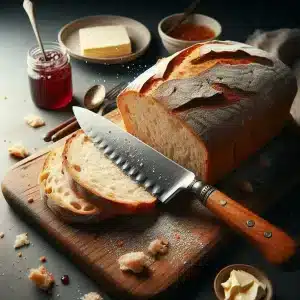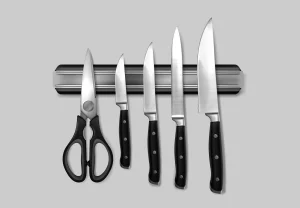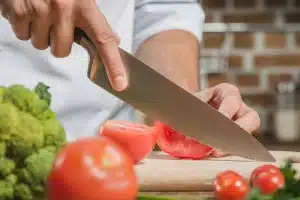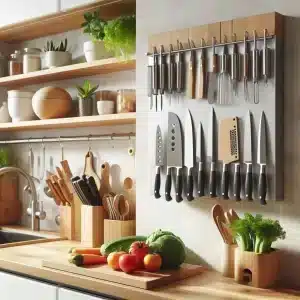Modern kitchens have seen a constant evolution in the materials and tools used for cooking and food preparation. One of the materials that has gained popularity in recent years is silicone, especially in the manufacture of kitchen utensils. But are silicone kitchen utensils really good? In this article, we will explore the advantages and disadvantages of these utensils, based on personal experiences and key information about their functionality and benefits.
What Are Silicone Kitchen Utensils?
Silicone kitchen utensils are made from a synthetic polymer known for its flexibility, durability, and heat resistance. These utensils include spatulas, ladles, tongs, and pastry brushes, among others. Unlike metal or wooden utensils, silicone offers a range of features that make it stand out in the modern kitchen.
Benefits of Silicone Kitchen Utensils
Flexibility and Softness
Since discovering silicone kitchen utensils, my cooking experience has completely changed. At first, I wasn’t sure if they could be as good as people said, but after using them, I understood why they are so popular. The first thing that surprised me was their flexibility and softness. Imagine having an agile dancer in the kitchen, effortlessly gliding between your pots and pans without scratching them. This softness not only protects the non-stick coating of your cookware but also makes it easier to handle delicate foods without damaging them.
Heat Resistance
Additionally, they are incredibly heat-resistant. I have used my silicone spatulas both in the oven and the freezer, and they have never deformed or released toxic substances. It’s like having a reliable friend who never melts under pressure. Silicone utensils can withstand extreme temperatures, making them ideal for cooking and baking.
Food Safety
Another great advantage is that they are completely food-safe. Unlike other materials, silicone contains no BPA or phthalates, which means you don’t have to worry about contaminating your food. It’s like cooking with an invisible guardian keeping everything safe and pure. Food safety is a major concern, and silicone utensils meet the strictest standards, ensuring no harmful chemicals are released into your food.
Durability and Maintenance
Stain and Rust Resistance
The durability of these utensils is also impressive. They do not rust or stain, which means they can last a long time without losing their appearance or functionality. I think of them as the superheroes of my utensil drawer, always ready for action without showing signs of wear. This durability is crucial for any kitchen tool that is frequently used.
Easy Cleaning
Furthermore, cleaning these utensils is a breeze. Thanks to their non-stick nature, even the stickiest foods slide off effortlessly. It’s like having an assistant who does the dirty work for you, leaving you more time to enjoy your meal. Easy cleaning not only saves time but also ensures the utensils remain hygienic and ready to use at any moment.
Versatility in the Kitchen
Versatility is another strong point. From mixing doughs to serving foods, these utensils are perfect for a variety of culinary tasks. It’s like having a multifunctional kitchen team in the palm of your hand. Whether you’re whipping up a quick breakfast or preparing a gourmet dinner, silicone utensils adapt to any task.
Aesthetic Appeal and Design Options
And finally, I can’t overlook how pretty they are. Available in a range of vibrant colors, they are not only functional but also add a touch of joy to my kitchen. It feels like having a painter’s palette, full of tools that not only work well but also look good. Aesthetics can be an important factor for many, and silicone offers options that combine style and functionality.
Comparison with Other Materials
Silicone vs. Wood
Wooden utensils have been a popular choice for a long time, known for their natural look and ability to avoid scratching cooking surfaces. However, wood can absorb liquids and odors, and over time, it can wear out. In comparison, silicone utensils do not absorb odors and are much easier to clean.
Silicone vs. Metal
Metal utensils, on the other hand, are extremely durable and do not deform with heat. However, they can scratch non-stick cooking surfaces and are less flexible. Silicone, with its heat resistance and softness, offers an alternative that protects your cookware while still being highly functional.
Conclusion
In conclusion, silicone kitchen utensils offer a unique combination of flexibility, durability, safety, and style that makes them an excellent choice for any kitchen. My personal experience has been extremely positive, and I can’t imagine going back to traditional utensils after trying silicone. If you are looking for an option that is safe, easy to maintain, and versatile, silicone utensils are definitely worth considering.




